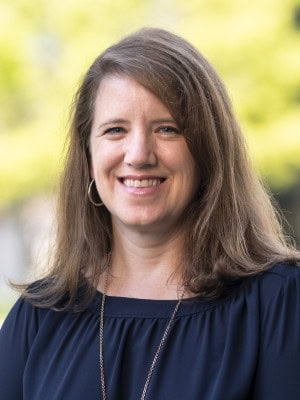Biosocial Predoctoral Training Program
Predoctoral trainees in the Biosocial Training Program join a vibrant community of faculty, research staff, and postdoctoral scholars engaged in research at the nexus of social and health sciences. The structure of the program is designed to allow trainees the flexibility to develop expertise in specific areas of interest, while still ensuring a common grounding in integrative theory, methods, and measures.
Directors and Participating Faculty
Program Directors
Participating Faculty
| Full Name | Email Address | Department |
| Alexandra Lightfoot | alexandra_lightfoot@unc.edu | Health Behavior |
| Alice Ammerman | alice_ammerman@unc.edu | Nutrition |
| Amanda Thompson | althomps@email.unc.edu | Anthropology |
| Audrey Pettifor | apettif@email.unc.edu | Epidemiology |
| Barbara Entwisle | entwisle@unc.edu | Sociology |
| Barry Popkin | popkin@unc.edu | Nutrition |
| Carolyn Halpern | carolyn_halpern@unc.edu | Maternal & Child Health |
| Chantel Martin | martchan@email.unc.edu | Epidemiology |
| Christy Avery | christy_avery@unc.edu | Epidemiology |
| Clare Barrington | cbarring@email.unc.edu | Health Behavior |
| Duncan Thomas | dthomas@econ.duke.edu | Economics and Public Policy |
| Elizabeth Frankenberg | elizf@email.unc.edu | Sociology |
| Eric Whitsel | eric_whitsel@med.unc.edu | Epidemiology |
| Folami Ideraabdullah | folami@email.unc.edu | Genetics; Nutrition |
| Guang Guo | guang_guo@unc.edu | Sociology |
| James Moody | jmoody77@soc.duke.edu | Sociology |
| Joanna Maselko | jmaselko@email.unc.edu | Epidemiology |
| John Batsis | john.batsis@unc.edu | Nutrition |
| Karen Mohlke | karen_mohlke@med.unc.edu | Genetics |
| Kari North | kari_north@unc.edu | Epidemiology |
| Kathleen Mullan Harris | kathie_harris@unc.edu | Sociology |
| Keely Muscatell | kmuscatell@unc.edu | Psychology and Neuroscience |
| Kenneth Bollen | bollen@unc.edu | Psychology & Neuroscience; Sociology |
| Leah Frerichs | leahf@email.unc.edu | Health Policy Management |
| Linda Adair | linda_adair@unc.edu | Nutrition |
| Michael Emch | emch@unc.edu | Geography |
| Morgan Hoke | mkhoke@unc.edu | Anthropology |
| Paul Delamater | pld@email.unc.edu | Geography |
| Penny Gordon-Larsen | pglarsen@unc.edu | Nutrition |
| Rebecca Fry | rfry@unc.edu | Environmental Sciences & Engineering |
| Robert Hummer | rhummer@email.unc.edu | Sociology |
| Sean Sylvia | sysylvia@email.unc.edu | Health Policy Management |
| Shelley Golden | sgolden@email.unc.edu | Health Behavior |
| Shu Wen Ng | shuwen@unc.edu | Nutrition |
| Stephanie Engel | Stephanie.Engel@unc.edu | Epidemiology |
| Stephanie Martin | slmartin@unc.edu | Nutrition |
| Taylor Hargrove | thargrov@email.unc.edu | Sociology |
| Y. Claire Yang | yangy@unc.edu | Sociology |
Program Requirements
Mentorship and Research Practicum
Incoming pre-doctoral trainees assemble a team of two co-mentors. At least one of the mentors must be from a discipline that is different from the pre-doctoral home department. In addition, at least one of the mentors must be a current CPC faculty fellow. A list of current CPC fellows can be found here. The team meets regularly to review the trainee’s progress in meeting goals, offer recommendations about new activities and opportunities, and provide professional guidance as the trainee prepares grant and job applications.
Trainees also work with their mentoring team to develop a research practicum that utilizes on integrative theory, methods, and measures. Generally, the research practicum is based on the funded research project of one of our training faculty; ideally, the project includes faculty from both the health and social sciences and is producing manuscripts that lead to presentation and publication in diverse scientific disciplines, while also maintaining work that can be published in the trainee’s home disciplinary area. Trainees are expected to devote 10 hours per week to their practicum.
Coursework
Predoctoral trainees are required to complete a total of 15 hours of coursework. These courses fall into four categories:
- Introductory Integration Course: This course, taught by the Program Directors, provides an initial exposure to integrated health science.
- Gap area courses: We require trainees to take two substantive courses in their gap area (health sciences for students entering from the social sciences; social sciences for students entering from the health sciences)
- Professionalization seminar: This weekly seminar provides a context and forum to advance trainees’ understanding of the ethical, professional, and scientific issues associated with the integration of the social and biological/health sciences.
- Advanced Integration Course: This “capstone” course that provides in-depth training on the integration of theory and methods that support integrative approaches.
- Approved Biosocial Courses
Model Course Sequence for Pre-doctoral Trainees
Year 1
| FALL – YEAR 1 | SPRING – YEAR 1 | SUMMER – YEAR 1 |
| Introductory Integration Course (3 credits) | Gap Area Course II (3 credits) | Dissertation Proposal Writing |
| Gap Area Course I (3 credits) | Advanced Integration Course (3 credits) | Annual Integration Symposium |
| Professionalization Seminar (1 credit) | Professionalization Seminar (1 credit) | Research Practicum (10 hours/week) |
| Research Practicum (10 hours/week) | Research Practicum (10 hours/week) |
Year 2
| FALL – YEAR 2 | SPRING – YEAR 2 | SUMMER – YEAR 2 |
| Dissertation Proposal Writing | Dissertation Writing | Dissertation Writing |
| Professionalization Seminar (1 credit) | Professionalization Seminar (1 credit) | Annual Training Program Symposium |
| Research Practicum (10 hours/week) | Research Practicum (10 hours/week) | Research Practicum (10 hours/week) |
| Dissertation Proposal Defended |
Year 3
| FALL – YEAR 3 | SPRING – YEAR 3 | SUMMER – YEAR 3 |
| Dissertation Writing | Dissertation Writing | Dissertation Completion |
| Professionalization Seminar (1 credit) | Professionalization Seminar (1 credit) | Publications |
| Research Practicum (10 hours/week) | Research Practicum (10 hours/week) | Grant Writing |
| Grant Writing |
Conference Attendance
All predoctoral trainees are required to submit abstracts to interdisciplinary and gap discipline national conferences or to present interdisciplinary research within their home discipline conferences. As part of this requirement, Biosocial predoctoral trainees must attend the Interdisciplinary Association for Population Health Sciences (IAPHS), a annual meeting for researchers using integrative approaches in population health. Trainees are required to submit an abstract and present their work at the annual UNC Symposium on Biosocial Approaches to Population Health Across the Life Course. This symposium includes oral and poster presentations, and a lunch presentation by a leading junior researcher.
Training in the Responsible Conduct of Research and Scientific Rigor and Reproducibility
In addition to completing online trainings on these topics during their initial appointment year, trainees are required to attend a minimum of four different approved sessions on research ethics and two different sessions on scientific rigor and reproducibility each appointment year.
Eligibility, Stipend/Benefits, and Application Process
Applications for the AY 2025-2026 are now closed. Applications for the AY 2026-2027 will open in November 2025 and close in January 2026. Please note that applicants will be asked to identify two program faculty with whom they have been in contact and who have agreed to act as a preceptor for them if they are admitted to the program. At least one of these faculty must also be a CPC Fellow.
We welcome applications from UNC-Chapel Hill predoctoral students from diverse backgrounds and disciplines. Applicants must be nearing completion of coursework in their home discipline and be ready to significantly enhance their training with interdisciplinary coursework, seminars, and a research apprenticeship. Students from any academic program are eligible to apply.
Trainees selected for funding will be supported by a T32 grant from the Eunice Kennedy Shriver National Institute of Child Health and Human Development (NICHD). Funded trainees receive a monthly stipend, in-state tuition, travel support, mandatory fees and insurance premiums, and office space, equipment use, and support services from CPC. Traineeship awards are made on a 12-month basis.
Trainees not selected for funding may be invited to join the program as non-stipended trainees. Non-stipended trainees receive travels support, office space, equipment use, and access to CPC support service.
All trainees, whether stipended or non-stipended, are appointed for a 12 month period and must reapply to the program each year.
Please contact Training Manager, Margaret Swingler (margaret.swingler@unc.edu), with any questions.
Contact
Please email the training manager (margaret.swingler@unc.edu) or cpc_tp@unc.edu with any questions about the Biosocial Training Program.


